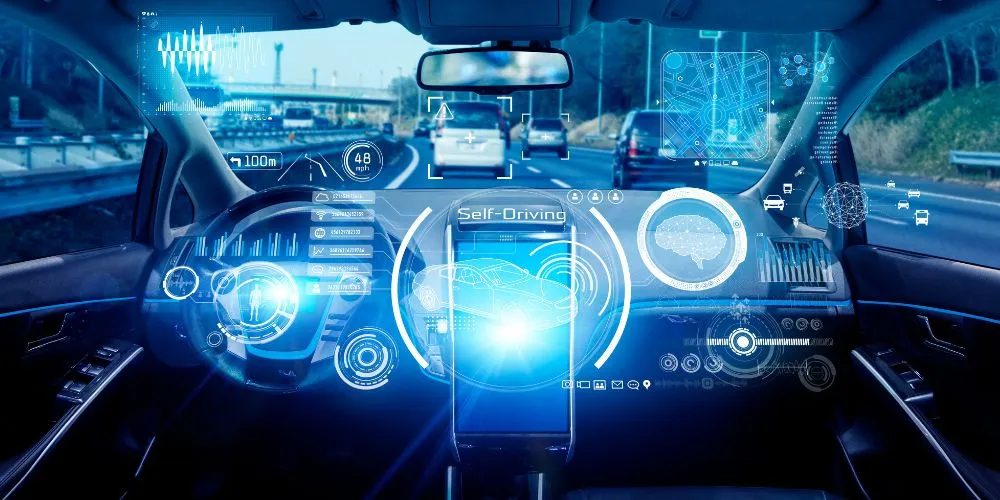An autonomous vehicle is a type of vehicle that can guide itself without information from a human driver. There are several kinds of self-driving vehicles, relying on their level of automation. This article discusses autonomous vehicles and how the vehicles can revolutionize transportation.
Autonomous Vehicle and Operation
An autonomous or driverless vehicle can drive itself and perform required tasks without human intervention through its ability to sense its surroundings. Autonomous vehicles (AVs), sometimes also referred to as self-driving cars or automated vehicles, are a category of automobiles in which some or all driving choices are made without a human.
An autonomous vehicle is “autonomous” because it uses sensors to get a picture of its operating environment and can make driving decisions based on that data without the intervention of a human operator.
Although some assume autonomous vehicles only drive themselves, the Society of Automotive Engineers (SAE) defines six categories of autonomous driving, ranging from low-level assistance to a human driver to complete autonomous control.
Revolution of Transportation
Autonomous vehicles can change how we approach ownership and rebuild our cities, improving well-being and accessibility, and increasing safety. AV is one of the most revolutionary changes in transportation. In this case, it is a vehicle without a steering wheel, pedals, or human intervention.
AVs, also known as self-driving or robot cars, log thousands of miles yearly to test America’s roadways. And not just in science fiction movies and cartoons, AVs are becoming a reality. A mix of technology companies, automobile manufacturers, and start-ups is racing to develop these vehicles.
Autonomous vehicles will also increase travel accessibility for people who otherwise could not drive, such as people with epilepsy, poor vision, or other impairments. A major benefit of autonomous cars is that commuting hours can be used for other tasks, such as leisure or work. Instead of the stress of being stuck in traffic, drivers could read, talk with friends and family, surf the internet, or even sleep.
Conclusion
Autonomous vehicles are revolutionizing transportation by making travel safer, more accessible, and more efficient. By eliminating the need for a human driver, these vehicles offer new possibilities for mobility, reducing traffic congestion and enhancing the quality of life. As technology companies and automakers refine their designs, the vision of a world where autonomous vehicles are a common sight on our roads moves closer to reality, promising a future where travel is not just a necessity but a seamless and enjoyable experience.







